virtual intercultural competency presentations
Learn With Us
overview of the program
Culture Beyond Borders, LLC (CBB) will provide intercultural competency (IC) presentations with pre/post IES (Intercultural Effectiveness Scale) assessments, and a focus developing IC attribute to enhance future professional endeavors for students.

session 1
Introduction to intercultural competency + IES assessment (1hr, in-person)
Students gain a working knowledge of the tenets and importance of IC; they come to grasp the mindset necessary to development one’s IC skills; and are primed to utilize the results from their IES assessment to begin on the developmental journey.
content
We define and reframe the following concepts for students: What is culture; What is the Intercultural Development Sensitivity Model (IDSM) and review the 6 stages; and what is Intercultural Competency (IC) and discuss the role of knowledge seeking, communication skills, and emotional hardiness.
ACTIVITIES
IES Assessment Pre-Test (pre-session): Students complete IES assessment pre-test
Culture Activity: Group discussion - E.g. hip-hop & culture
Culture Activity: Pair up into 2 or 3 - Identifying our own culture (family, social media, areas of interests such as fashion, sports, etc.); then report to group
IDSM Activity: Pair up into 2 or 3 – Identify people or moments associated with specific developmental models; then report to group
Intercultural Competency Activity: Group discussion – cultural differences in social greetings (handshakes)
session 2
Benefits of Intercultural Competency and the IES Assessment (1hr, in-person)
Students gain further understanding of the attributes of intercultural competency and strategies on how to develop one’s IC skills; furthermore, students are able to directly connect how developing IC attributes benefits their future professional endeavors.
content
Brief review of culture, intercultural development, and intercultural competency. Detailed overview of the intercultural effectiveness scale, including a discussion of typical IES profiles and their strengths and weaknesses. We also identify the similarities between IC attributes and attributes necessary for success in diverse/intercultural work teams.
ACTIVITIES
Culture Activity: Group discussion on differences in online text message shorthand
IES Results Activity: Pair up into 2 or 3 – Examine your results. Which one or two of the IES profiles we discussed is matches your own IES profile? Report back to group.
Professional Workplace Activity: Pair up into 2 or 3 – discuss how IC attributes can enhance your performance in present project teams and/or future workplace/project teams; report back to the group
session 3
Exercising the Attributes of Intercultural Competency (Virtual Meeting for All)
Students apply the attributes we identified in the last two sessions through synchronous and asynchronous connections with Global Peers. Students will use the peer-to-peer connection to discuss, and compare and contrast, their cultural experiences, engaging attributes such knowledge gathering, communicating skills, and emotional hardiness.
content
Students will send and receive pre-recorded introductory video to (and from) their peer counter-part in the week preceding the session 3 meeting. They will also exchange follow up email(s) with their assigned Global Peer before the meeting. The assigned Global Peers will be present during the session 3 meeting. We will review in-depth notions such as worldviews, communication styles, and cognitive states like culture shock and psychological safety.
ACTIVITIES
Cultural Activity (pre-session): Introduction with your Global Peer: Pre-record video on your phone or computer introducing yourself, your personal & academic interests, and aspects of your social or cultural identity that influenced those interests. Students then review video they receive from their Global Peer and write at least one follow up email to Global Peer with questions.
Group Discussion: Initial reaction to your Global/Domestic Peer: Share similarities and differences in interest and experiences; discuss communication challenges (if any), why or why not?
Breakout Rooms part 1: 2 groups Global Peers vs Domestic Peers discuss among themselves the notions of worldviews, communication styles, and cognitive states discussed.
Breakout Rooms part 2: 2 groups of mix of Global and Domestic Peers discuss their impressions of worldviews, communication styles, and cognitive states discussed. Then report back to the main group.
IES Assessment Post-Test (post-session): Students complete IES assessment post-test
Contact Us
LOOKING TO SCHEDULE YOUR VIRTUAL LEARNING PROGRAM?
Interested or have any general questions? Fill out the contact form below!

